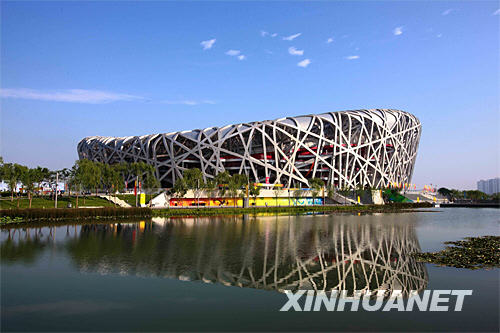By Hou Xiaoying
Following the Games, the running of the Olympic stadiums will become a practical issue for the Beijing government. The Bird's Nest alone needs annual revenues of 50-70 million yuan (US$7-10 million) to pay its running costs. To keep all the venues running would be a huge burden for Beijing, the International Herald Leader reported on August 27.
 |
|
The Bird's Nest
|
Prior to the Games the Beijing government had already given thought to the issue, and many venues were built in densely populated areas or close to university campuses so that people could use them as fitness gymnasiums. Some temporary venues will be demolished or renovated based on overall infrastructure needs, while important stadiums will be commercially operated after the Games.
Zhang Hengli, vice general manager of the National Stadium Co, the owner of the Bird's Nest, said: "The operation of the Games stadiums after the Olympics is a worldwide problem." The Olympic stadiums in Sydney and Athens both became burdens to local government, while the Olympic Sports Center on which China spent hundreds of million yuan for hosting the Asian Games was also run by the government at a loss before the Beijing Olympics.
Will China find a solution to the problem?
The basic objective is to achieve maximum returns from the operation of the stadiums and raise funds to pay for Beijing's Olympics. Liu Zhi, Beijing Municipal Government's spokesman for the Olympic Games, said that investment from the Beijing government was less than 13 billion yuan (US$2 billion), which included investment on the 31 stadiums that were newly built or renovated, including temporarily structures.
"The biggest investment project was Bird's Nest. This is the first stadium to come under PPP operation," said Zhang Hengli. PPP – Public-Private-Partnership – means the government and private enterprise will share the risk of operating the stadium. In contrast the National Indoor Stadium, the National Conference Center and the Beijing Olympic Basketball Stadium were Build-Operate-Transfer (BOT) projects, meaning that the investor is fully responsible for design, investment, construction and operation of the project and can make a profit within a certain period of time, following which the investor has to transfer ownership to the government.